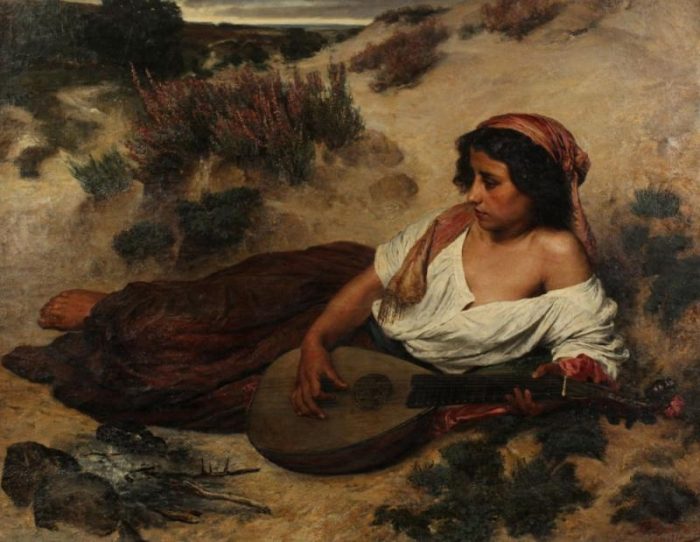
I read The Prophet by Gibran Khalil Gibran when I was 18.
A dear friend of mine from college had given me the book on my 18th birthday. Later during my senior year, I did a final thesis to present the life of the Lebanese-American writer and artist, and explain the great influence he’s had on revolutionizing both Western and Arabic literature.
But perhaps, what drew me the most to Khalil Gibran’s life wasn’t his evident brilliance since the time he was young or the eloquence of his words or poetry. But instead, I was compelled by an all too familiar story that hits home to me…the story of an immigrant who, along with his family, had fled the tight grip of religion and political corruption to find new beginnings in the west.
Beyond what we see in our media, films, and the general stereotypes, every country that has known disasters, wars, and displacement is ripe with brilliant minds that are waiting to be discovered. Lebanon, Khalil Gibran’s hometown, is no exception, and neither is any other part of the Middle East, Iran, or Afghanistan.
But given the region’s long battle with sectarianism and its many attempts to rebel against the reigns religious hypocrisy, a theme that Khalil Gibran beautifully narrates in his love story, Broken Wings, many of these brilliant minds end up imprisoned, silenced by poverty, or both.
Imagine that if instead of introducing him to the photographer Fred Holland Day, Khalil Gibran’s art teacher had singled him out for not being a white American, or for not being fluent in English, or for simply being a poor immigrant.
Imagine if he was never given the tools to unleash his artistic talents. He probably would’ve never socialized with the artistic and literary scene in Boston, never had met Mary Haskell, who later became his patron, funder, and two-decades English tutor, and never had gone to Paris to pursue a career in painting and art.
And decades later, we would’ve never had the chance to read his classical masterpiece, The Prophet.
As a person who identifies with multiple belongings—however, never fully belonged anywhere—I advocate the inclusion of minorities and whomever we might perceive as the “other.”
Every community, no matter how small or insignificant it might seem, has richness, roots, and substance to offer.
But if we never allow these communities to thrive, we might be missing out on challenging our own rigid and outdated norms, integrating with other cultures, and exchanging ideas, emotions, and behaviors that can potentially contribute with so much richness to our own lives as Khalil Gibran once did with his words that transcended the barriers of cultures, religions, politics, and countries.
When we allow ourselves to be receptive to the ways of the “other,” we are opening ourselves to the possibility of what could be, and what could be can never happen as long as we’re stuck in our own rigidness and comfort zones.
The Turkish-English writer, Elif Shafak, once said in her beautiful book, The Forty Rules of Love, “How do you know that the side you are used to is better than the one to come?” This is an important question that every person in the 21st century should be asking themselves.
Let’s all agree that we’re grateful that Khalil Gibran had the right opportunities to thrive and to share his brilliance with the rest of the world—east and west.
To commemorate this timeless book that explores questions of love, life, and death, among many other themes, I’ve compiled my personal favorite quotes that have shaped my early introduction into the world of mysticism and spirituality:
“Let there be spaces in your togetherness, and let the winds of the heavens dance between you. Love one another but make not a bond of love: let it rather be a moving sea between the shores of your souls.”
“Fill each other’s cup but drink not from one cup. Give one another of your bread but eat not from the same loaf. Sing and dance together and be joyous, but let each one of you be alone. Even as the strings of a lute are alone though they quiver with the same music. Give your hearts, but not into each other’s keeping. For only the hand of Life can contain your hearts. And stand together, yet not too near together: for the pillars of the temple stand apart, and the oak tree and the cypress grow not in each other’s shadow.”
“When love beckons to you follow him, though his ways are hard and steep. And when his wings enfold you yield to him, though the sword hidden among his pinions may wound you. And when he speaks to you believe in him, though his voice may shatter your dreams as the north wind lays waste the garden. For even as love crowns you so shall he crucify you. Even as he is for your growth so is he for your pruning. Even as he ascends to your height and caresses your tenderest branches that quiver in the sun, so shall he descend to your roots and shake them in their clinging to the earth…”
“Love possesses not nor would it be possessed; for love is sufficient unto love. And think not you can direct the course of love, if it finds you worthy, directs your course. Love has no other desire but to fulfill itself.”
“Your children are not your children. They are the sons and daughters of Life’s longing for itself. They come through you but nor from you, and though they are with you yet they belong not to you.”
“And forget not that the earth delights to feel your bare feet and the winds long to play with your hair.”
“In the sweetness of friendship let there be laughter and sharing of pleasures. For in the dew of little things, does the heart find its morning and is refreshed.”
“Even as the stone of the fruit must break, that its heart may stand in the sun, so must you know pain. And could you keep your heart in wonder at the daily miracles of your life, your pain would not seem less wondrous than your joy; and you would accept the seasons of your heart, even as you have always accepted the seasons that pass over your fields.”
“I love you when you bow in your mosque, kneel in your temple, pray in your church. For you and I are sons of one religion, and it is the spirit.”
“You would know the secret of death.
But how shall you find it unless you seek it in the heart of life?
The owl whose night-bound eyes are blind unto the day cannot unveil the mystery of light.
If you would indeed behold the spirit of death, open your heart wide unto the
body of life.
For life and death are one, even as the river and the sea are one.”
AUTHOR: RASHA AL JABI
IMAGE: IRINA/FLICKR

Read 12 comments and reply